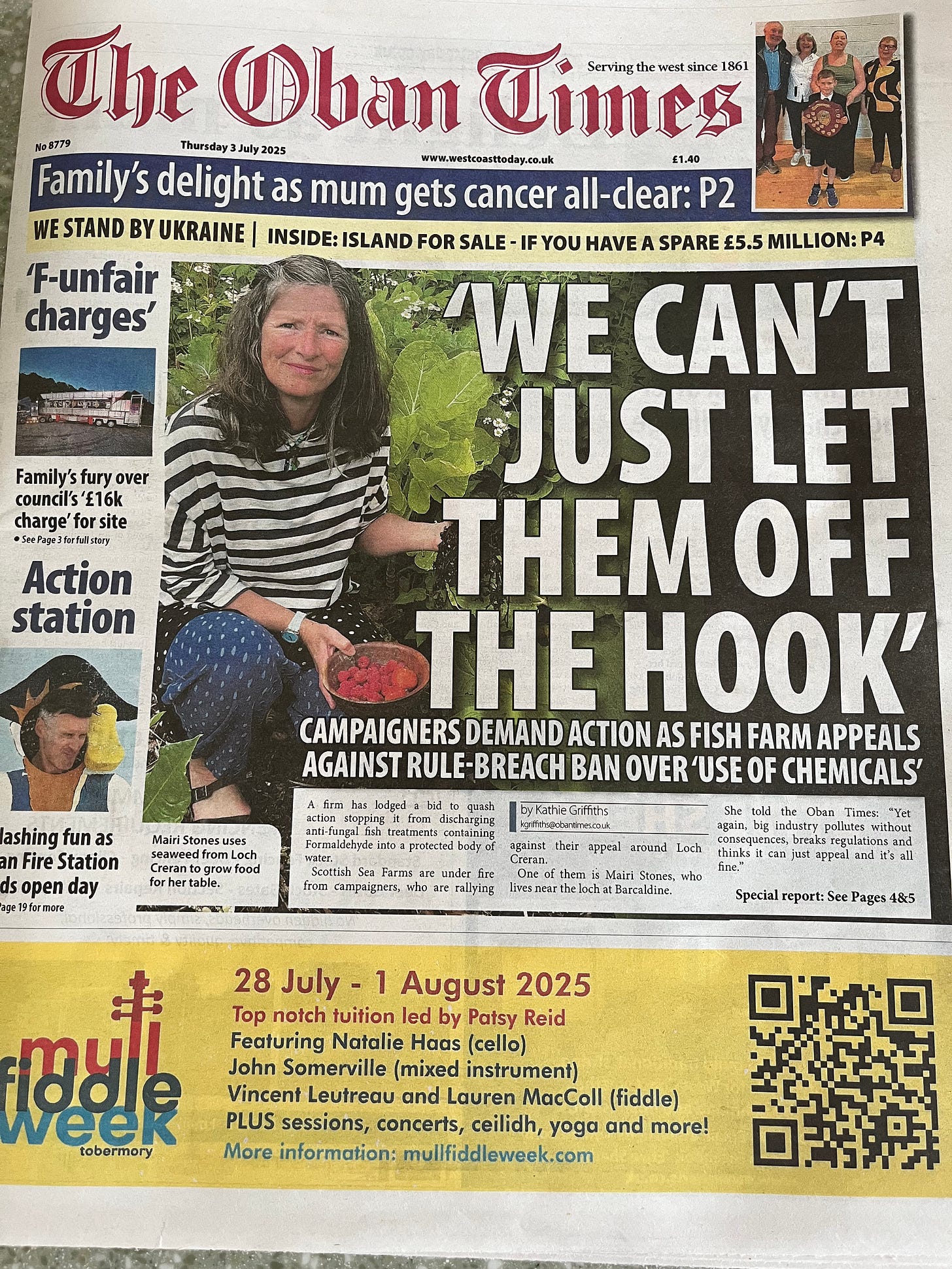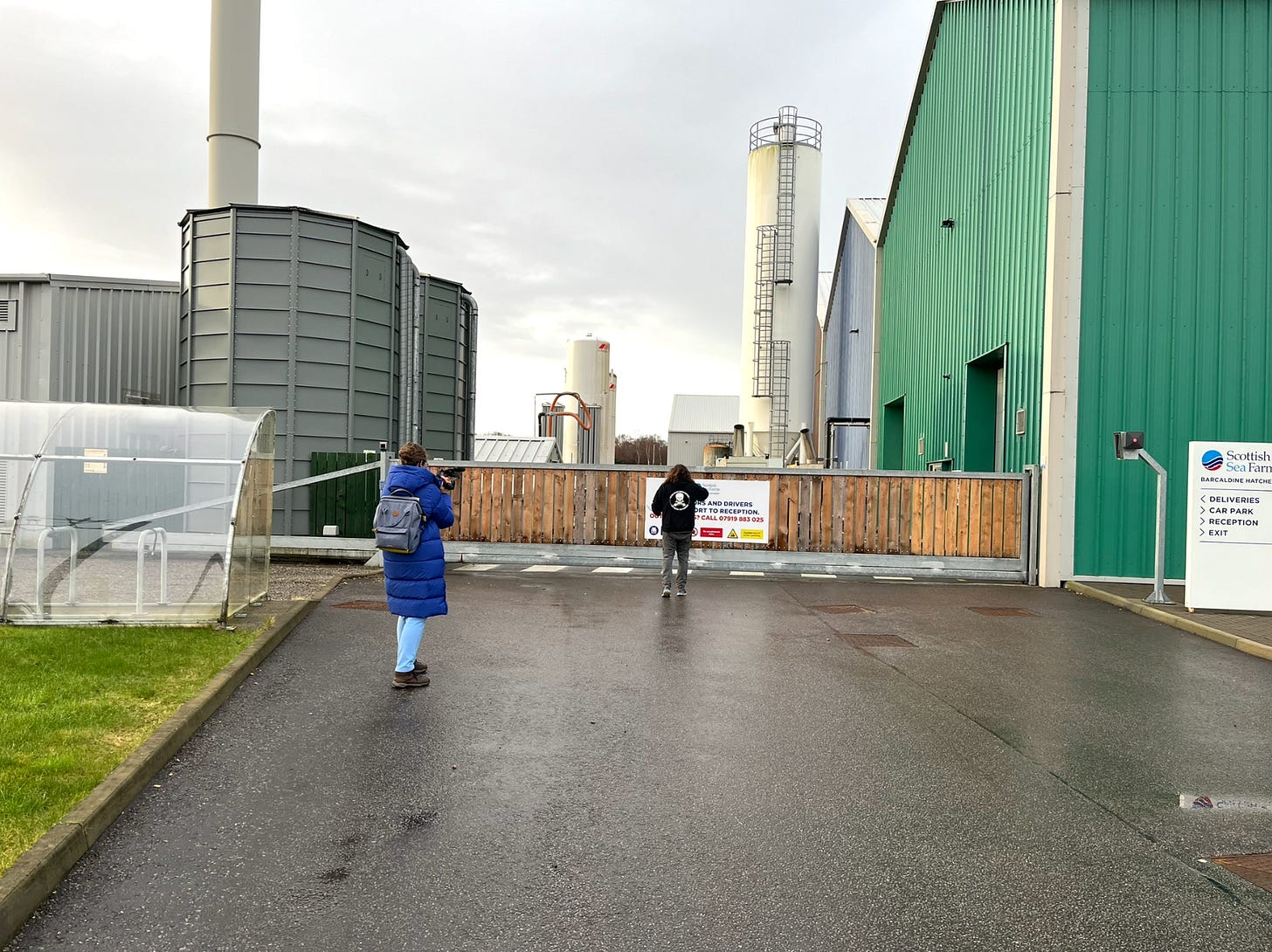This front page article on the new Oban Times has reminded me that it’s well over time for another post on my Substack. My only excuse is that I’ve been busy doing background research and legal work on behalf of the anti-fishfarm activist Don Staniford. For several years he’s been defending himself against three of the largest fish farm companies, MOWI, Scottish Sea Farms and Bakkafrost, who have been trying to get court interdicts against him, the effects of which would prohibit him from, among other things, going near to fish farms, despite their being located in the public open seas, and also climbing onto the walkways around the cages to take images of the animal suffering and waste that are features of this highly damaging industry.
A second story has broken this week, showing that companies hedge their bets and don’t only rely on legal means to keep things secret:
https://www.theguardian.com/world/2025/jun/29/revealed-spies-for-hire-salmon-farm-activists
Unlike other activists, who set out to attract publicity by causing damage, Don takes care to leave no trace of his visits. His standards of biosecurity, disinfection, etcetera, are far higher than the companies adhere to themselves. It’s only when his reports appear in the Press and on the BBC and Channel Four that they get to know that he’s been on a site. He invariably visits sites alone and in early morning, when no employees are present, which makes the fact that he’s being tracked very worrying.
Don’s reports have also led to international interest in what’s going on in the course of producing the UK’s major food export. At the start of the year Don learned of an extraordinary number of fish deaths in the hatchery at Barcaldine, operated by Scottish Sea Farms. He spread the word and so massive was the incident that a major European television network sent a team over to investigate. I went up and took some photographs, which were duly embargoed at the time.
The story has now broken, big time. 700,000 fish deaths over a short period is surely something the public should know about; our European visitors certainly thought so. Failed attempts to “cure” the fish of saprolegnia resulted in Scottish Sea Farms deliberately breaking the law by dumping massive loads of poison into Loch Creran, a stretch of water officially designated as extremely sensitive and of great environmental importance. The company’s reaction? Hire one of Scotland’s largest law firms, Shepherd & Wedderburn, to challenge the regulator!
It’s obvious that the companies doing this damage don’t want anyone to know about it. From a legal point of view this raises the question of what basis they may have for stopping Don from contributing to the process of journalism. Clearly there is reputational damage when the public learn that a company has tolerated mass outbreaks of disease, when caged fish have been eaten to death by sea lice, and when massive quantities of poisons and antibiotics have been discharged into our inshore waters, but such damage is not legally recoverable; on the contrary these activities themselves are arguably illegal.
A future article will explore this in detail, for now I’ll just refer to an article I had published last year;
Until recently, Don had a legal team working for him, without any expectation of payment. After spending several years on the MOWI case, many thousand hours of work, it became clear that they had done more than their share, and there was an amicable separation. He’s now taking active steps to recruit a new team, and looking for contributions from anyone who feels, as I do, that our environment is worth fighting for. In the last month I’ve sat behind him in court twice, as he attempted to represent himself, and it’s clear that he’s no lawyer! His gofundme account can be found here:
https://www.gofundme.com/f/stop-the-almafia-privatising-public-waters-in-scotland






